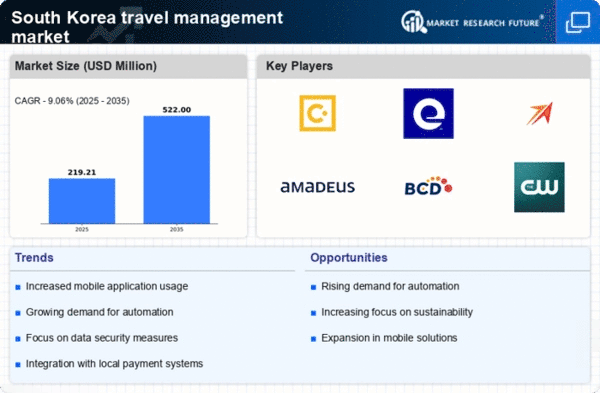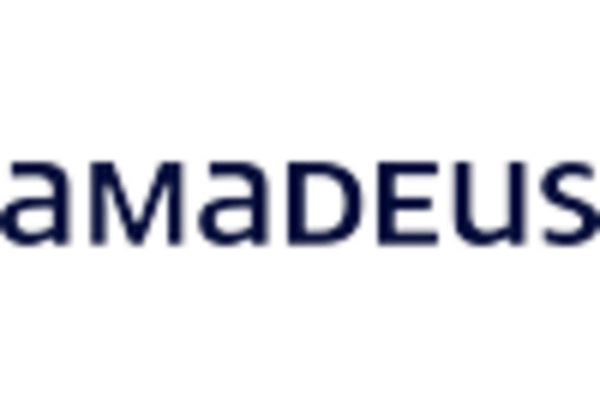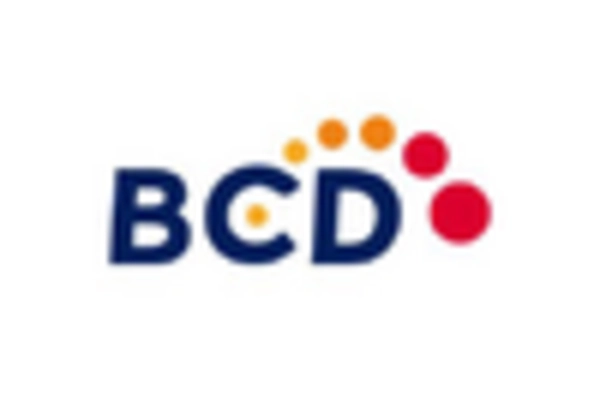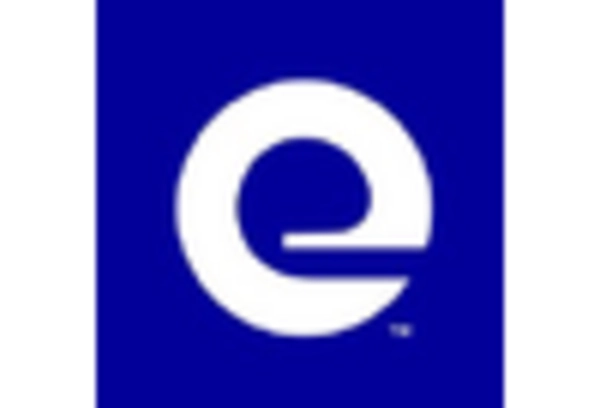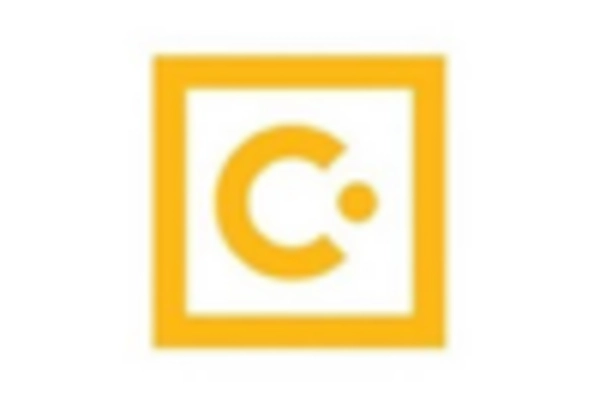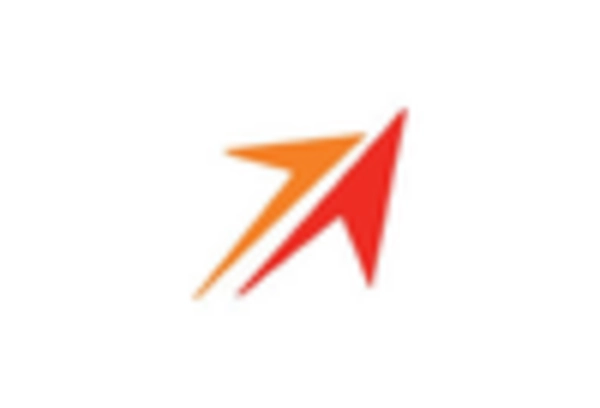Integration of Advanced Analytics
The integration of advanced analytics into the travel management-software market is transforming how organizations approach travel planning. By leveraging data analytics, companies can gain insights into travel patterns, spending behaviors, and employee preferences. This capability allows for more informed decision-making, potentially leading to cost savings of up to 20% in travel expenditures. Furthermore, analytics can enhance compliance with travel policies, ensuring that employees adhere to guidelines while optimizing travel budgets. As businesses in South Korea increasingly recognize the value of data-driven strategies, the demand for travel management software equipped with robust analytics features is likely to escalate, driving market growth.
Shift Towards Mobile Accessibility
The travel management-software market is witnessing a significant shift towards mobile accessibility, reflecting the changing preferences of modern travelers. With the proliferation of smartphones, employees expect to manage their travel arrangements on-the-go. This trend is particularly pronounced in South Korea, where mobile penetration rates exceed 90%. As a result, software providers are prioritizing mobile-friendly interfaces and applications that facilitate seamless booking and itinerary management. This shift not only enhances user experience but also aligns with the increasing demand for flexibility in travel arrangements. Consequently, the travel management-software market is likely to expand as organizations adopt mobile solutions to meet the evolving needs of their workforce.
Focus on Cost Control and Budget Management
Cost control and budget management are becoming paramount in the travel management-software market, as organizations strive to optimize their travel expenditures. In South Korea, businesses are increasingly adopting software solutions that provide comprehensive budget tracking and reporting features. This focus on financial oversight is driven by the need to maintain profitability in a competitive landscape. Companies are seeking tools that enable them to set travel budgets, monitor spending in real-time, and generate detailed reports for analysis. As a result, the travel management-software market is expected to grow, with an estimated increase of 12% in demand for budget management functionalities over the next few years.
Rising Demand for Efficient Travel Solutions
The travel management-software market in South Korea experiences a notable surge in demand for efficient travel solutions. As businesses expand their operations, the need for streamlined travel processes becomes increasingly critical. Companies are seeking software that can automate booking, manage itineraries, and provide real-time updates. This trend is reflected in the market's growth, with projections indicating a potential increase of 15% in software adoption among enterprises over the next few years. The emphasis on efficiency not only reduces operational costs but also enhances employee satisfaction, as travelers benefit from smoother experiences. Consequently, the travel management-software market is poised to thrive as organizations prioritize effective travel management.
Emphasis on User Experience and Customization
User experience and customization are critical drivers in the travel management-software market, as organizations seek solutions that cater to their specific needs. In South Korea, companies are increasingly prioritizing software that offers personalized features, allowing users to tailor their travel experiences. This emphasis on customization enhances user satisfaction and encourages higher adoption rates among employees. Furthermore, software providers are investing in user-friendly interfaces and intuitive designs to streamline the booking process. As businesses recognize the importance of a positive user experience, the travel management-software market is likely to see a rise in demand for customizable solutions that align with organizational preferences.


